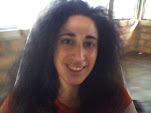After a 30 minute call to home, I’m left feeling like I belong to two different places, two different worlds. It seems so easy to make KC a part of my past – something that faded to only to be replaced by the present Guyana. Talking with mom and dad and Tony made home come to the fore font of my mind, more vivid and a part of me than ever. Which is odd to consider, as my surroundings suggest otherwise. The two places seem worlds apart (and I seem to have classified them a such) when in many cases, they are not. I guess my immediate world (fam, friends, places) are different, and to me – to all of us, maybe – that can seem like the only world existing sometimes. But I don’t think I realized how great the differences were (or how much I perceived them to be) until I spoke with and observed a Guyanese woman who has lived in Miami for the past three years. She came to visit her family for a few weeks and my first experience in the mandir was going to a service that included a pooga for her. (Mandir is their church/temple, pooga is a sort of prayer ceremony that one person or a few people will do. I saw one done at the Dig dutty, the wedding and the 13 day) . Then, one evening, a woman and her granddaughter came to my host family’s house to visit. As soon a she started talking, my first reaction was that I liked this woman. It puzzled me for a second; she spoke similar to Guyanese, using the “me nah know’s” and “dat” and “dis” – but there was something different about her.
I finally realized her accent – it wasn’t bona fide Guyanese, it was clearer and spoken with more… personality. It also was her aura/ attitude. She was more assertive, alert, self-aware. After consciously noticing all this, I realized that she was the one living in the U.S. and THAT was why I liked her so much! I saw in her that familiar U.S. demeanor something I didn’t realize we possessed OR that I was starved for, something I hadn’t realize meant so much to me. Seeing a Guyana-born woman with U.S. characteristics was even more meaningful. One, it was just a delight to see a mixture, since it’s been US and THEM, on the two extremes. It’s kind of like a Guyanese/American hybrid or something. Also it made me realize how different Guyanese (women) were from Americans. Guyanese woman are more reserved, less self-aware, less flamboyant. Their words blend into each other with no intonation. Though perhaps it just seems that way to me, a foreigner, maybe there are more subtle nuances to the language a foreigner does not observe. Self-aware seems the best description ;there was just something about her that shouted “American.” It made me see what others must perceive in us. After I realized she was “the one” who was visiting from the U.S., it felt like a link to home! So there I was, in Guyana experiencing the bugs, heat, hammock, roti ,gold jewelry, etc. and hearing abut Miami, garage doors and Hillary Clinton and Barrack Obama. It was the oddest sensation. Yup, almost as if there were a rip in the space/time continuum or a parallel universe or something. I think the clash of my two worlds is a good thing, though. It’ll help me during my two years in turning it from “Us and Them” to “We.”
And I can’t even imagine what it’ll feel like when I have visitors from the US! How strange will that be?
